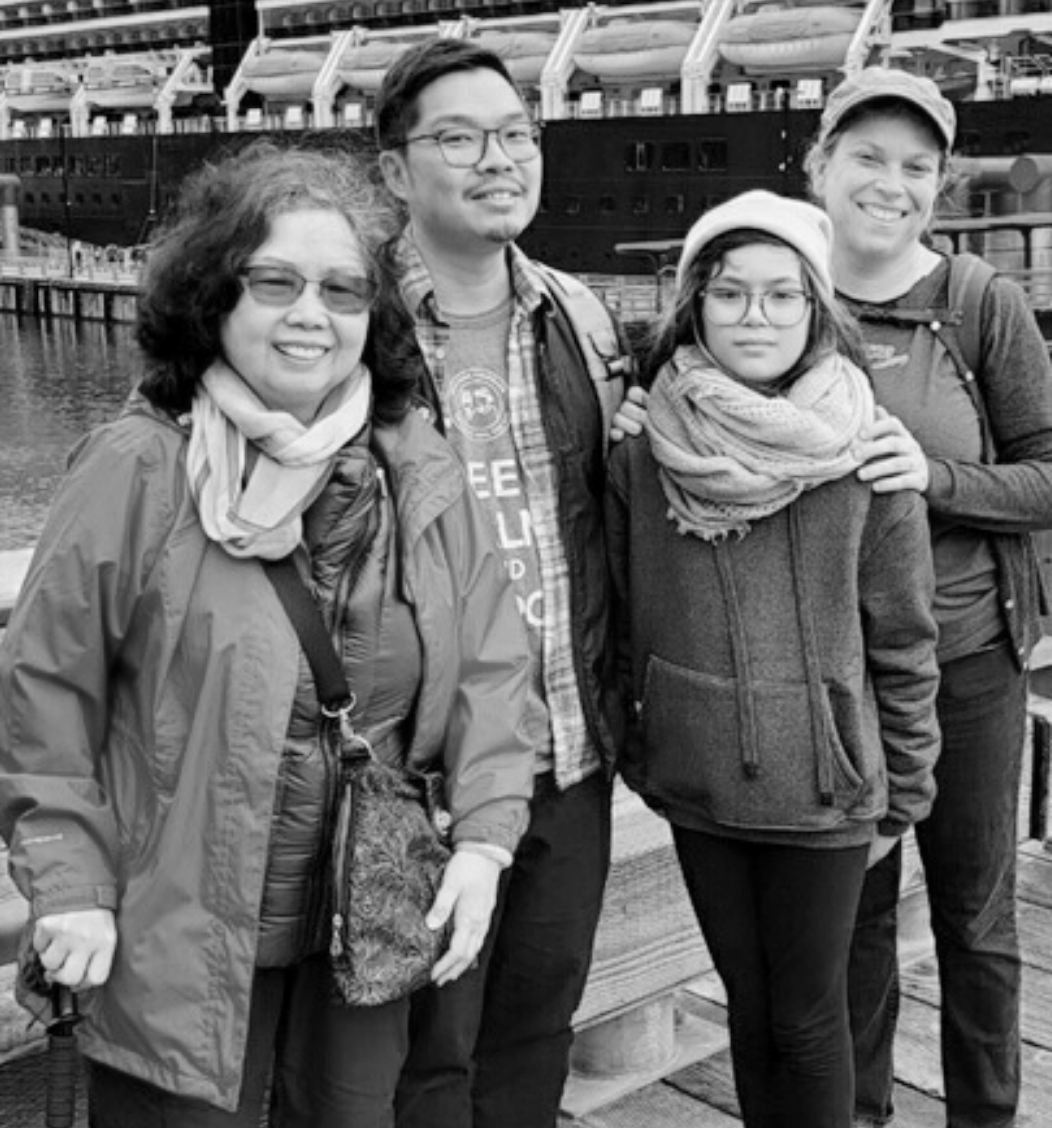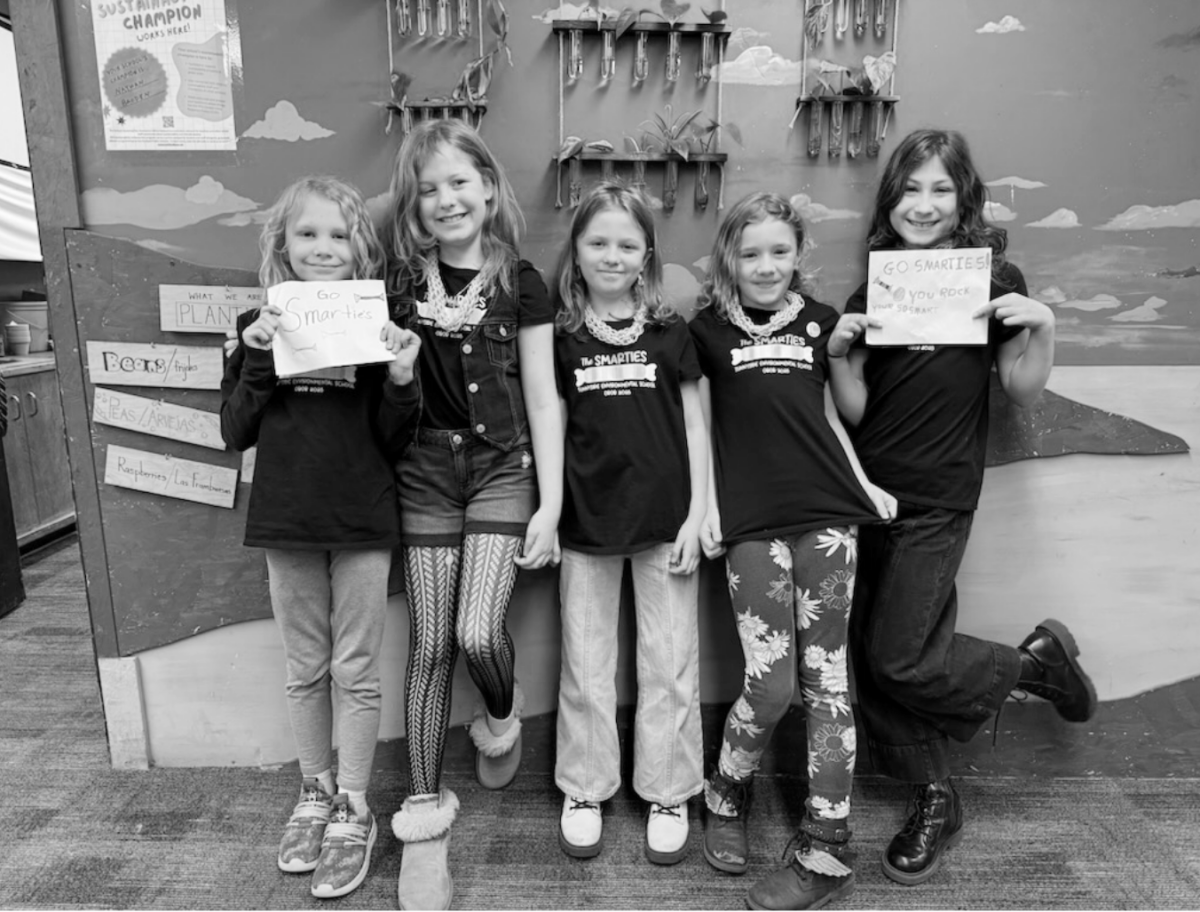Q&A with Anthony Myint, Executive Director of Zero Foodprint
In the midst of the pandemic, Anthony Myint and his wife Kara Leibowitz left San Francisco’s bustling Mission District and moved to Portland with their daughter Aviva. They settled in Sunnyside to be close to family and with the hopes of starting a garden. Myint, a former chef, is passionate about local, regeneratively-farmed food. Years earlier, he and Leibowitz had two of the most talked-about restaurants in San Francisco—Mission Chinese Restaurant and The Perennial. Knowing that agriculture and the food system are responsible for one-third of greenhouse gas emissions worldwide, they strove to make The Perennial carbon neutral. They did a great job but after a few years, they realized that if they really wanted to change the food system (and they did!), they needed to incentivize farmers to change their practices. In 2015, Myint co-founded Zero Foodprint, an environmentally-focused nonprofit that makes it easier for farmers to switch to regenerative farming practices. Zero Foodprint invites restaurants, grocery stores, wineries and other businesses committed to reversing climate change to accelerate regeneration. Most businesses accomplish this at no cost, by adding an optional 1% surcharge to consumers’ bills. That money is then pooled into a ZFP coffer to be equitably distributed to farmers via grants. (It’s akin to rounding up your bill in the checkout line at the grocery store to donate to the food bank.) ZFP is active in four states, including Oregon, and has affiliates in Asia and Scandinavia.
Zero Foodprint, which has so far given away $7.5 million to over 500 regenerative farming projects, won the James Beard Humanitarian of the Year Award in 2020. We talked with Myint about the importance of accelerating regenerative agriculture, the cool Oregon projects that are underway, and why “voting with your fork” is not enough. And what about that garden? It’s flourishing with decorative plants, euphorbia volunteers, and, in summer, cherry tomatoes and berries.
How long have you lived in Sunnyside?
Anthony: Three and a half-years.
What do you love about Sunnyside?
Anthony: I love the community vibes. We came from the Mission District and our reason for moving was to garden, and to be more involved in the community. In San Francisco, we had a tiny backyard, and it was pretty shady.
Tell me about Zero Foodprint. In a nutshell, what is it doing?
Anthony: It’s a nonprofit that enables every citizen, business, and government to accelerate regeneration. We’re doing that by making it possible for contributions to fund projects at farms & ranches like planting cover crops, switching from fertilizer to compost, reducing tillage, planting trees and perennials, and installing fencing for managed grazing.
New Seasons, Organically Grown, and Bob’s Red Mill have gotten involved?
Anthony: Yes and also Tillamook. They all have made and are making various contributions—New Seasons is going big on regeneration. They’re each funding regenerative ag projects in different ways. We have already funded eight projects and we just started the final phases of the next grant; another four or five will be funded. Two restaurants are contributing 1%: Hayward (in wine country) and Astera (Aaron Adams’ new restaurant).
Tell me about some of these projects.
Anthony: There are three projects with Tillamook producers that are implementing riparian restoration—planting new trees and willows along a creek that will provide shade. We are funding a compost application project with a producer in the Bob’s Red Mill supply chain. And Muddy Ranch, which is a part of the New Season supply chain, used the grant to implement a grazing technology that uses a radio collar on the cows so you don’t need a lot of physical fencing. (It beeps if they go too far.) That’s a really great project because it’s around 20,000 acres.
You mentioned that some wineries in California have signed on—Mariah vineyards in Mendocino and Massican in Napa. Are they donating a percentage of sales?
Anthony: Those two are sending 1% of sales. There is also a winery in Colorado called Carboy, and they are participating with 1% from their tasting rooms.
Have any Oregon wineries signed on?
Anthony: Not yet. But I think there’s a lot of room for growth in the wine industry.
Overall there still may be a disconnect where the food system, the public and consumers don’t know that they can make a direct intervention in agriculture. A lot of us, me included, have been trained to make better choices and then hope that farming will change—we’ve been trying to make the change happen by changing eating. But it’s too slow. The whole organic movement is just 1% of acreage after 50 years. So I think part of our mission and our message is: We can change farming directly. We don’t have to change our eating and hope that things will change someday. We can just change it now.
Not enough of us are “voting with our forks.”
Anthony: And also, that wouldn’t actually help a farmer make the transition to more regenerative practices.
I’m surprised that more Portland-area restaurants haven’t signed up to participate. Especially at PDX!
Anthony: What you’re getting at is fundamental; capitalism and business-as-usual is to not pay anything for the environment. So for any individual to make that decision, “I’m gonna raise my prices and give that money away” is a pretty radical act, even though it is very do-able. I think the airport would be the perfect organizing structure. They could do it and it could be part of their marketing and messaging. In a way, it should be central to tourism and hospitality anyway to benefit the community—even just slightly.
If you want to give to Zero Foodprint, go to www.zerofoodprint.org or visit Hayward (www.haywardrestaurant.com) or Astera (1407 SE Belmont) for dinner.


